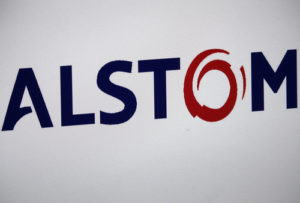DOJ Scores Big With Record-Breaking Alstom FCPA Sentence -- Who's Next On The DOJ'S FCPA Hit List?
 By Eric Havian and Gordon Schnell (Published in Offshore Alert)
By Eric Havian and Gordon Schnell (Published in Offshore Alert)
Late Friday, French power and transportation company Alstom S.A. was sentenced to pay a $772 million fine for violating the Foreign Corrupt Practices Act (FCPA) through its payment of millions of dollars in secret bribes to government officials across the globe. This follows the company’s December 2014 guilty plea to the charges. The 9-figure payout represents the largest criminal fine ever imposed for foreign bribery. See DOJ Press Release.
According to the company’s own admissions, Alstom paid bribes to government officials and falsified books and records in connection with power, grid and transportation projects for state-owned entities around the world, including in Indonesia, Egypt, Saudi Arabia, the Bahamas and Taiwan. In Indonesia, for example, the company paid bribes to a high-ranking member of the Indonesian Parliament and high-ranking members of Perusahaan Listrik Negara, the state-owned electricity company, to secure roughly $375 million worth of contracts to provide power-related services.
Alstom’s corruption scheme not only involved making the illicit payments to secure government contracts. It also involved concealing the bribes by retaining consultants purportedly to provide consulting services but that actually served as conduits for the illegal payments. In total, Alstom paid more than $75 million in bribes to secure more than $4 billion in projects around the world, with a profit to the company of approximately $300 million.
In announcing the sentence, the largest ever for an FCPA violation, the DOJ highlighted why it was so severe. The agency stressed it was based on Alstom’s failure to voluntarily disclose the misconduct; its refusal to cooperate with the government when it got caught; the breadth of the misconduct; the company’s lack of an effective compliance and ethics program; and its history of engaging in similar foreign bribery schemes. In spelling out its enforcement rationale, the DOJ seemed intent on putting companies on notice it will not tolerate foreign bribery. But some are beginning to wonder if the agency is only looking for the big scores?
Notably, the DOJ’s announcement of its record-breaking FCPA enforcement action comes only two days after the Wall Street Journal reported a “sea change” in the agency’s foreign corruption enforcement approach. According to the Journal, just two corporate FCPA cases were settled over the past year, down from an average of 10 over the past three years. Cases against individuals have followed an equally precipitous slide. What this seems to reflect is a new policy by the DOJ to focus only on “higher impact” cases” — namely, those involving bigger companies, engaging in bigger corruption schemes, resulting in bigger fines. The Alstom case fits precisely into this new enforcement framework.
What remains to be seen is whether this kind of narrowed regulatory focus may tempt smaller companies to become more lax in their compliance efforts, believing they are no longer on the government’s anti-bribery radar. Those companies and executives thinking about rolling the dice with this kind of gambit should tread carefully. The DOJ may be zeroing in on the big fish for now, but the agency has made it clear it will not tolerate foreign bribery of any size. According to DOJ spokesman Peter Carr, “the number of public announcements about filed cases or resolutions will vary, but have no doubt that our commitment to FCPA enforcement is stronger than ever.”
And lest we forget, DOJ enforcement aside, the Securities and Exchange Commission is also on the beat. And this rejuvenated enforcement body has shown no signs of slowing down in its FCPA crusade, averaging this year about one settlement a month and counting. Moreover, corporate executives should take note it is not just their companies that remain in the government’s crosshairs. The DOJ has made it clear it will go after individuals too. The Alstom indictments included numerous US and foreign executives at the company, several of whom pleaded guilty to FCPA violations and are currently in jail.
So the bottom line for those doing business in the US, both big and small: foreign bribery does not pay. And if approached to take part in an illicit scheme, you would be wise to reach out to your company’s compliance department, or avail yourself of the protections (and potential rewards) under the whistleblower programs of the False Claims Act or Dodd-Frank Act. Otherwise, you may risk a whole lot more trouble than just a swift boot from the executive suite.
Tagged in: FCPA,